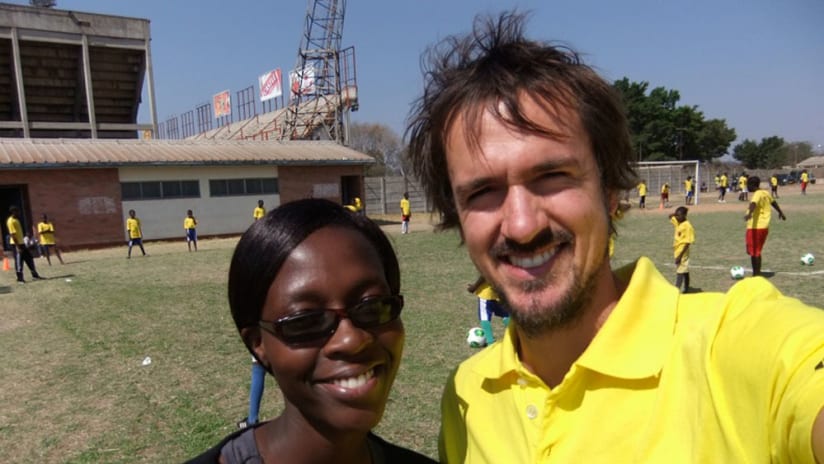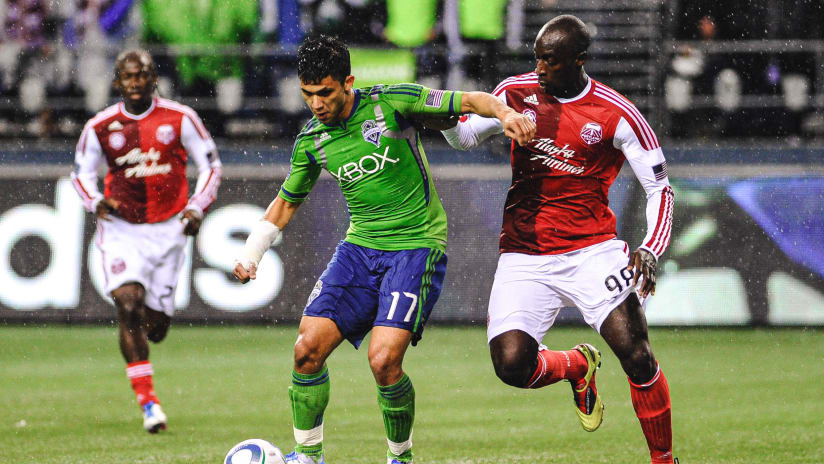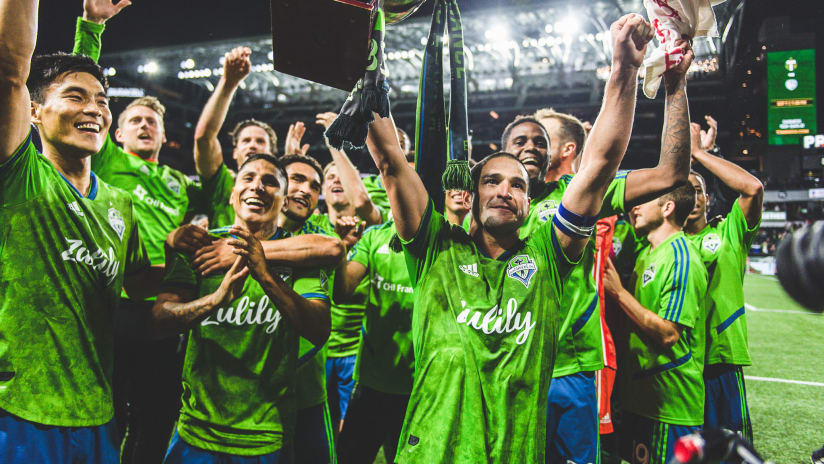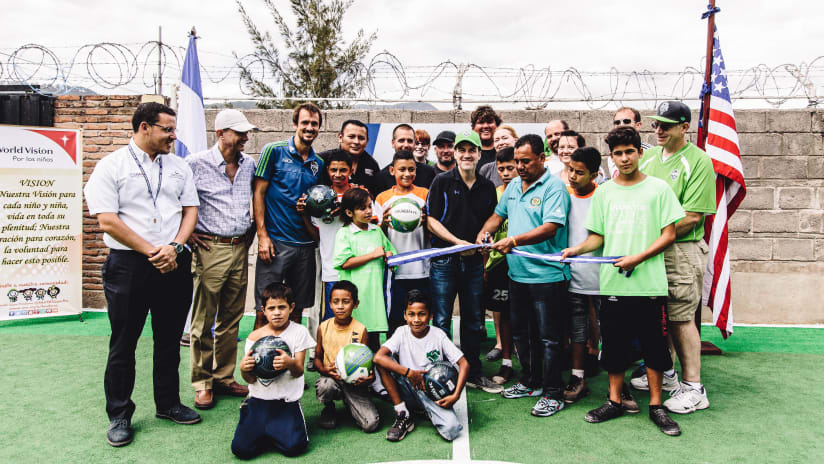The mercurial former forward is enjoying his retired life by traveling to Africa to help stop the spread of HIV.
When Sounders FC hosted the Portland Timbers in front of a Seattle-record crowd of 67,385 at CenturyLink Field on August 25, Sounders legend and Timbers foil Roger Levesque was conspicuously absent.
In the days leading up to the match, his silence ended when he posted a 48-second YouTube video from Zimbabwe to “stir the pot” from afar. Levesque is not one to miss out on the Cascadia Derby that helped make him a cult hero among the Sounders faithful, but he had good reason. He was in Bulawayo, Zimbabwe, working with Grassroot Soccer – a non-profit organization aimed at stopping the spread of HIV using soccer as an avenue to educate.
“It’s a great melding of the soccer world and the non-profit world,” said Levesque, who retired in July of 2012 to pursue his MBA at the University of Washington, focusing on working in the non-profit sector. “It was great from the business side of things, but also from the life experience perspective. It was an opportunity to explore and continue to shape my path going forward.”
Levesque was connected to Grassroot Soccer through the organization’s co-founder Tommy Clark. The son of Levesque’s college coach at Stanford, Bobby Clark, and the brother of University of Washington coach Jamie Clark, Tommy Clark started Grassroot Soccer after playing professionally and teaching in Zimbabwe. He lived there briefly in his youth and returned after college to find the city of Bulawayo as a shell of its former vibrant self because of the outbreak of HIV and AIDS.
Now, 10 years after founding the organization, it has grown to include outposts in South Africa and Zambia and has such ambassadors as U.S. National Team defender Oguchi Onyewu and former Sounders FC midfielder Freddie Ljungberg.
“Soccer is the world’s game and when you go to a place like Bulawayo, Zimbabwe, they are able to leverage the relationships with role models in soccer like America SCORES and other organizations to connect and engage,” Levesque said. “Once that engagement happens, there is a level of teaching that helps you better reach people.”
Levesque was much more than a public face to a worthy cause during his two months in Africa, though.
Living on his own in the suburbs, he would go into the city each day and work in the office, focusing on organizational structure and internal marketing. While he was not as involved in coaching and implementation, he would occasionally go into the field to fully immerse himself in all facets of the organization. He did have some experience in a similarly run program – America SCORES Seattle utilizes soccer to aid education of children in underserved communities.
Within the non-profit world Levesque learned some valuable things about how he wants to shape his future.
“From the business side of things, I’m still exploring the non-profit world,” he said. “Being connected to that was great. My main role was on the business side as support and I realized that every little bit makes a difference. I think it’s opened it up and made it broader. The confidence that comes with having my first office experience and in thinking about the non-profit world, there are a lot of different ways to do good. That impact will drive what I want to do.”
Now back in Seattle, Levesque pointed out perhaps the most valuable thing that he learned while in Zimbabwe – the impact felt in Bulawayo with HIV and AIDS education can be made in any number of communities with any number of outlets.
With a year still remaining in the Master’s program at UW, he will have plenty of time to determine what his next step is, but he learned that whatever he is doing, he wants to be doing it in the community that has embraced him so much over the last decade.
“You don’t have to travel all the way to Zimbabwe to have an impact and to make a difference. There is a lot of good that you can do right here in your own community. And that can take any form,” he said. “The path to eventually get here may have twists and turns, depending on opportunities, but I’m so happy to be here. I love Seattle.”
For more information on Grassroot Soccer, visit www.GrassrootSoccer.org.





